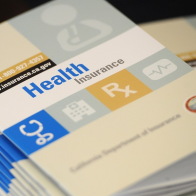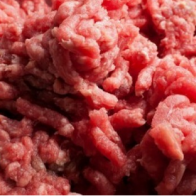 If you’re anything like me, you’re probably just as confused, and slightly annoyed with the varying reports on the health benefits and detriments of drinking red wine. In October, a study reported that Resveratrol, the “healthy” ingredient in red wine stops breast cancer cells from growing by blocking the growth effects of estrogen. Resveratrol, which is found in the skin of grapes, has also been said to lessen the risk of cardiovascular disease, Alzheimer’s, and even prevent obesity by stopping immature fat cells from maturing.
If you’re anything like me, you’re probably just as confused, and slightly annoyed with the varying reports on the health benefits and detriments of drinking red wine. In October, a study reported that Resveratrol, the “healthy” ingredient in red wine stops breast cancer cells from growing by blocking the growth effects of estrogen. Resveratrol, which is found in the skin of grapes, has also been said to lessen the risk of cardiovascular disease, Alzheimer’s, and even prevent obesity by stopping immature fat cells from maturing.
This month, however, a study which tracked the alcohol consumption of over 105,986 women every four years for nearly 3 decades claims that even a moderate amount of alcohol can increase the risk of breast cancer. Published in the Journal of the American Medical Association, the Harvard University study states that compared to non-drinkers, women who have the equivalent of three to six glasses of wine a week had a 15 percent increased risk of invasive breast cancer. A total of 7,690 of those women in the study received a diagnosis of invasive breast cancer.
These varying studies on the harms and benefits of red wine are enough to make you dizzy, or, want a glass of wine.
So, to enjoy that glass of Cabernet Sauvignon or Syrah with your dinner tonight, that is the question. Though the answer, may not be as straight-forward. A number of factors should be considered in regard to alcohol consumptions’ link to breast cancer rates and any disease for that matter, including family history, age, and a history of smoking.
“For each individual woman, whether or not she decides to change her drinking habits depends on her own personal risk factor profile to decide what is best for her,” said Assistant Professor at Harvard School of Medicine Wendy Chen, who headed the Harvard study.
Lifestyle choices are critical to consider in light of what is sure not to be the last of findings on the health effects of wine.
“Let’s say you usually hardly have a drink, but you are on vacation and have one glass a day on vacation — that’s not a problem,” Chen said. “That’s an important thing to emphasize — it’s not just what people do in the short term but their cumulative intake over time.”
 The bottom line? Be practical. If your diet is high in fatty foods, a glass of Merlot is not going to protect you against heart disease, but a commitment to exercise and a diet rich in heart healthy options can. We are a society obsessed with quick fixes and health reports that can change as quickly as the weather. One thing that we can have control over, despite what scientists discover, is practicing healthy living.
The bottom line? Be practical. If your diet is high in fatty foods, a glass of Merlot is not going to protect you against heart disease, but a commitment to exercise and a diet rich in heart healthy options can. We are a society obsessed with quick fixes and health reports that can change as quickly as the weather. One thing that we can have control over, despite what scientists discover, is practicing healthy living.
My mother has a saying that I’ve carried with me throughout life because it can be applied to a number of situations: “Everything in moderation, for moderation is a priceless equalizer.” Cheers to that Mom!
Cheers!






